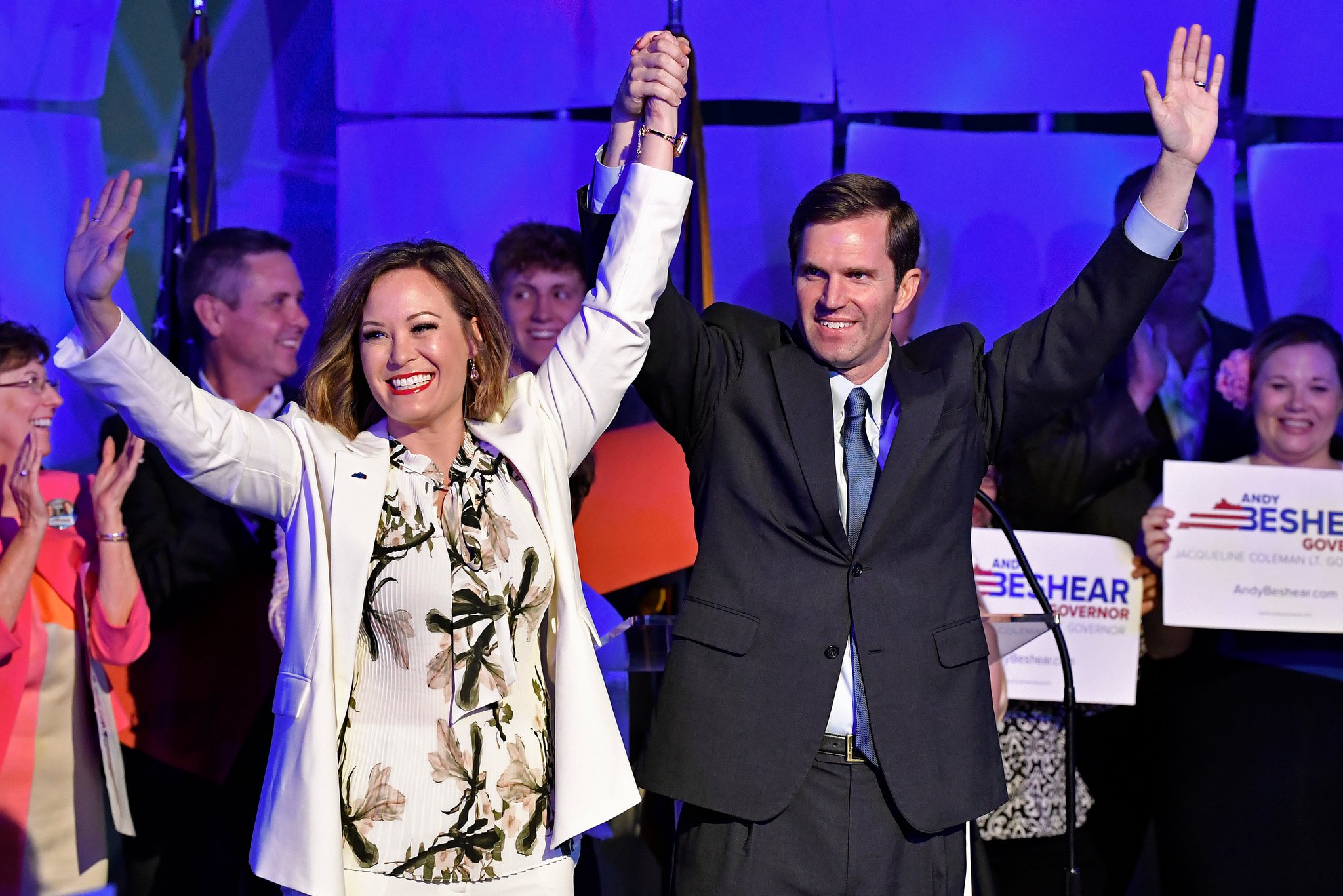The 2023 Elections: Key Takeaways and Potential Implications For Next Year’s Races
Photo by Associated Press
CALLA O’NEIL: Earlier this month, we experienced the 2023 off-year election cycle. The cycle included gubernatorial and state legislative elections, as well as mayoral races and a variety of other local offices. The results represent major victories for particular interest groups and can provide crucial insight into next year’s national elections.
First off, the results from this past month gave Democrats something to celebrate. Kentucky Gov. Andy Beshear (D) won against Trump-backed state Attorney General Daniel Cameron (R). Beshear has a 60% approval rating among Kentucky voters, despite governing in a conservative state where voters overwhelmingly backed former President Trump in both 2016 and 2020.
Throughout his governorship, Beshear has vetoed and publicly criticized policies brought forth by Kentucky’s Republican-dominated legislature that aimed to restrict abortion and transgender rights. His reelection illustrates the influence of social issues on voting and rising support for Democratic positions on these key issues.
In Virginia, Democrats regained full control of the General Assembly after two years of divided power. The most notable winner in the state was Democrat Schuyler VanValkenburg, who unseated incumbent Republican Rep. Siobhan Dunnavant in Richmond. The Democrats’ victory in the upper chamber is expected to hinder the momentum of Republican Gov. Glenn Youngkin’s conservative agenda, which includes a proposed 15-week abortion ban.
Interestingly, recent history has shown that election results for the Virginia legislature correlate with the results of the following national election cycles. In 2019, Democrats flipped both chambers of the Virginia Legislature. The following year, Democrat Joe Biden won the presidency. In 2021, Republicans retook the Virginia House, preceding the GOP winning back the U.S. House of Representatives in 2022.
This past election cycle also showed unprecedented mobilization around abortion rights, indicating a potential pathway for Democrats to drive voters to the polls in the upcoming 2024 Congressional elections.
For instance, Ohio, which hosted this year’s only abortion referendum, became the latest red-learning state to vote in favor of abortion rights. The state passed Issue 1, an initiated constitutional amendment supporting reproductive justice. Ohioans voted for amending the Ohio Constitution to provide a state constitutional right to “make and carry out one’s own reproductive decisions, including but not limited to ‘decisions about abortion, contraception, fertility treatment, miscarriage care, and continuing pregnancy.”
Finally, there were historic wins in Rhode Island and Pennsylvania. Philadelphia elected Cherelle Parker as its 100th mayor, the first Black woman to hold the title. Parker previously served as a state representative, a Philadelphia City councilor, and the chair of the Delaware River Port Authority. In Rhode Island, Gabe Amo won the state’s 1st Congressional District seat, becoming the first Black person to represent the state in Congress. He will serve the rest of the term of former Democratic Rep. David Cicilline, who stepped down over the summer. Amo will be up for reelection again next year.
While these election results cannot predict what will happen in 2024, they certainly showcase trends that likely will influence the next round of elections. The overwhelming support for abortion rights in this year’s elections may shape how Republican candidates address the issue in their respective campaigns moving forward. In addition, the Democratic victory in the Virginian House likely eliminates the possibility of a potential bid by Gov. Glenn Youngkin for the presidency. However, the path forward for a Democratic victory in 2024 is still uncertain, as President Biden continues to suffer from low approval ratings and concerns among voters about his age and handling of the economy.
Calla O’Neil is a columnist for On The Record. She is a sophomore in the School of Foreign Service studying International Politics with a minor in Journalism.

